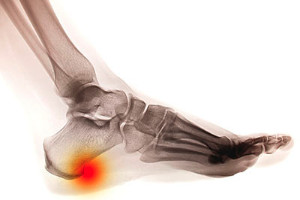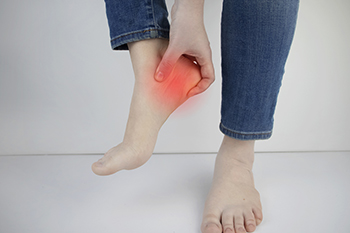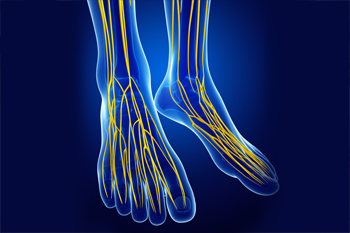283 St Rose Ave
Windsor, ON N8S 1X1
September 2021
Can the Foods You Eat Affect Plantar Fasciitis?
Plantar Fasciitis is an inflammation of the band of tissue that connects your heel with your toes on the sole of your foot. Many people believe inflammation throughout the body can be reduced by making certain dietary adjustments—particularly by increasing the consumption of anti-inflammatory foods and decreasing consumption of inflammatory foods. Anti-inflammatory foods include green leafy vegetables, carrots, broccoli, strawberries, blueberries, tomatoes, legumes, nuts, lean meats, as well as tuna and salmon which are rich in omega-3 fatty acids. Inflammatory foods have high levels of sugar, including soft drinks, pastries and sweets, candy, processed foods, junk food, refined grains, as well as oils containing omega-6 fats (corn/soy/cottonseed oil), saturated fats and red meats. For more information on how to heal the pain and inflammation of plantar fasciitis, schedule an appointment with a podiatrist.
Plantar fasciitis can be very painful and inconvenient. If you are experiencing heel pain or symptoms of plantar fasciitis, contact the practitioners from Foot Care Institute. Our practitioners can provide the care you need to keep you pain-free and on your feet.
What Is Plantar Fasciitis?
Plantar fasciitis is the inflammation of the thick band of tissue that runs along the bottom of your foot, known as the plantar fascia, and causes mild to severe heel pain.
What Causes Plantar Fasciitis?
- Excessive running
- Non-supportive shoes
- Overpronation
- Repeated stretching and tearing of the plantar fascia
How Can It Be Treated?
- Conservative measures – anti-inflammatories, ice packs, stretching exercises, physical therapy, orthotic devices
- Shockwave therapy – sound waves are sent to the affected area to facilitate healing and are usually used for chronic cases of plantar fasciitis
- Surgery – usually only used as a last resort when all else fails. The plantar fascia can be surgically detached from the heel
While very treatable, plantar fasciitis is definitely not something that should be ignored. Especially in severe cases, speaking to your doctor right away is highly recommended to avoid complications and severe heel pain. Your podiatrist can work with you to provide the appropriate treatment options tailored to your condition.
If you have any questions please feel free to contact our office located in Windsor, ON . We offer the newest diagnostic and treatment technologies for all your foot and ankle needs.
Causes of Nerve Pain in the Feet
Many nerves run to, from, and through the feet. When you experience symptoms of nerve problems, like burning foot pain, tingling, numbness, or weakness, it could be a sign of nerve damage. There are various nerve problems that can affect the feet. Injuries to the feet, such as tarsal tunnel syndrome or Morton’s neuroma, medical conditions like diabetes or Charcot Marie Tooth disease, and certain medications can cause nerve pain. Problems that originate in the spine, such as a herniated disk, spinal stenosis, and peripheral neuropathy, can all lead to foot pain as well. If you have nerve pain in your feet, it is important to let your podiatrist know. Early diagnosis can mitigate symptoms and slow progression or prevent the problem from worsening.
Neuropathy
Neuropathy can be a potentially serious condition, especially if it is left undiagnosed. If you have any concerns that you may be experiencing nerve loss in your feet, consult with the practitioners from Foot Care Institute. Our practitioners will assess your condition and provide you with quality foot and ankle treatment for neuropathy.
What Is Neuropathy?
Neuropathy is a condition that leads to damage to the nerves in the body. Peripheral neuropathy, or neuropathy that affects your peripheral nervous system, usually occurs in the feet. Neuropathy can be triggered by a number of different causes. Such causes include diabetes, infections, cancers, disorders, and toxic substances.
Symptoms of Neuropathy Include:
- Numbness
- Sensation loss
- Prickling and tingling sensations
- Throbbing, freezing, burning pains
- Muscle weakness
Those with diabetes are at serious risk due to being unable to feel an ulcer on their feet. Diabetics usually also suffer from poor blood circulation. This can lead to the wound not healing, infections occurring, and the limb may have to be amputated.
Treatment
To treat neuropathy in the foot, podiatrists will first diagnose the cause of the neuropathy. Figuring out the underlying cause of the neuropathy will allow the podiatrist to prescribe the best treatment, whether it be caused by diabetes, toxic substance exposure, infection, etc. If the nerve has not died, then it’s possible that sensation may be able to return to the foot.
Pain medication may be issued for pain. Electrical nerve stimulation can be used to stimulate nerves. If the neuropathy is caused from pressure on the nerves, then surgery may be necessary.
If you have any questions, please feel free to contact our office located in Windsor, ON . We offer the newest diagnostic and treatment technologies for all your foot care needs.
Signs of a Heel Spur
 Heel spurs are bony growths that protrude from underneath the heel bone. While heel spurs often form alongside plantar fasciitis, they can also form on their own. Either way, heel spurs do have similar symptoms to plantar fasciitis. These symptoms include pain and tenderness under the heel (particularly while bearing weight), pain that is worse in the mornings, and worsening symptoms while running or walking. Heel spurs are generally only discovered through X-rays. They can be very painful, but they also may not be noticed at all. As the fat pad under the heel wears out, heel spurs tend to become more painful. Patients who are struggling with heel pain should consult with a podiatrist for a proper diagnosis of their pain.
Heel spurs are bony growths that protrude from underneath the heel bone. While heel spurs often form alongside plantar fasciitis, they can also form on their own. Either way, heel spurs do have similar symptoms to plantar fasciitis. These symptoms include pain and tenderness under the heel (particularly while bearing weight), pain that is worse in the mornings, and worsening symptoms while running or walking. Heel spurs are generally only discovered through X-rays. They can be very painful, but they also may not be noticed at all. As the fat pad under the heel wears out, heel spurs tend to become more painful. Patients who are struggling with heel pain should consult with a podiatrist for a proper diagnosis of their pain.
Heel spurs can be incredibly painful and sometimes may make you unable to participate in physical activities. To get medical care for your heel spurs, contact the practitioners from Foot Care Institute. Our practitioners will do everything possible to treat your condition.
Heels Spurs
Heel spurs are formed by calcium deposits on the back of the foot where the heel is. This can also be caused by small fragments of bone breaking off one section of the foot, attaching onto the back of the foot. Heel spurs can also be bone growth on the back of the foot and may grow in the direction of the arch of the foot.
Older individuals usually suffer from heel spurs and pain sometimes intensifies with age. One of the main condition's spurs are related to is plantar fasciitis.
Pain
The pain associated with spurs is often because of weight placed on the feet. When someone is walking, their entire weight is concentrated on the feet. Bone spurs then have the tendency to affect other bones and tissues around the foot. As the pain continues, the feet will become tender and sensitive over time.
Treatments
There are many ways to treat heel spurs. If one is suffering from heel spurs in conjunction with pain, there are several methods for healing. Medication, surgery, and herbal care are some options.
If you have any questions feel free to contact our office located in Windsor, ON . We offer the latest in diagnostic and treatment technology to meet your needs.
Arthritis Can Cause Pain in the Feet and Ankles
What Is a Ganglion Cyst?
A ganglion cyst is a fluid-filled sac that originates from a tendon sheath or joint capsule and forms a knot-like lump below the surface of the skin. While they usually form on the wrists, these types of cyst are fairly common in the feet, particularly on the top of the foot. Ganglion cysts often cause no symptoms, but when they are symptomatic you may notice a tingling or burning sensation, or a dull ache or pain. You might also have difficulty wearing shoes due to friction from the lump rubbing against your shoes while you walk. If they are asymptomatic, these cysts can be left alone and monitored by your podiatrist. However, if you have a painful ganglion cyst, your podiatrist may prescribe steroid injections and draining the cyst, as well as orthotics or footwear modifications to reduce pressure on the area. For more information about ganglion cysts on the feet, please consult with a podiatrist.
Foot Pain
Foot pain can be extremely painful and debilitating. If you have a foot pain, consult with the practitioners from Foot Care Institute. Our practitioners will assess your condition and provide you with quality foot and ankle treatment.
Causes
Foot pain is a very broad condition that could be caused by one or more ailments. The most common include:
- Bunions
- Hammertoes
- Plantar Fasciitis
- Bone Spurs
- Corns
- Tarsal Tunnel Syndrome
- Ingrown Toenails
- Arthritis (such as Gout, Rheumatoid, and Osteoarthritis)
- Flat Feet
- Injury (from stress fractures, broken toe, foot, ankle, Achilles tendon ruptures, and sprains)
- And more
Diagnosis
To figure out the cause of foot pain, podiatrists utilize several different methods. This can range from simple visual inspections and sensation tests to X-rays and MRI scans. Prior medical history, family medical history, and any recent physical traumatic events will all be taken into consideration for a proper diagnosis.
Treatment
Treatment depends upon the cause of the foot pain. Whether it is resting, staying off the foot, or having surgery; podiatrists have a number of treatment options available for foot pain.
If you have any questions, please feel free to contact our office located in Windsor, ON . We offer the newest diagnostic and treatment technologies for all your foot care needs.










